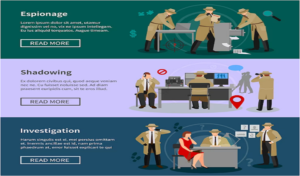The economic cost of terrorism who pays the price

Terrorism is now a big worry for people and countries all over the world. In recent years, there have been a lot more attacks, which has cost a lot of lives and hurt the economy in a big way. In this piece, we’ll talk about how much terrorism costs in terms of money and who ends up paying the price.
Defining Terrorism
Before we talk about how much terrorism costs in terms of money, it’s important to know what the word “terrorism” means. Terrorism is the use of violence or threats to make people afraid and scared for political, religious, or ideological reasons. It can come in many different ways, like bombings, kidnappings, murders, and cyberattacks. Most of the time, the goal of terrorism is to get a certain political result or to bring attention to a certain cause.
Costs of Terrorism to the Economy
The economic costs of terrorism are very high and go far beyond the harm that terrorist attacks do right away. Here are a few ways that terrorism can hurt an economy:
Straightforward costs
Direct costs are the money problems that come up right away after a terrorist attack. This includes the cost of damage to property, medical bills, and costs related to responding to the emergency, like paying for first responders and a cleanup crew. The direct costs can range from a few thousand dollars to millions of dollars, based on how bad the attack was.
Costs that are not directly paid for
Indirect costs are the long-term effects of a hit on the economy. This can lead to lost business, less tourism, and less trust among consumers. For example, the 9/11 attacks in New York City had a big effect on tourism. In the months after the attacks, the number of tourists in the city dropped by more than 30%. Indirect costs can hurt the economy much more than direct costs, and it can take years for the economy to recover from them.
Spending more on security
Terrorist acts can also lead to more money being spent on security. To stop future attacks, governments may need to spend more money on security staff, tools, and technology. This can be a cost that keeps coming up and can add up fast over time.
Costs to the mind
Terrorism can have a big effect on the economy as well as on people’s minds. Terrorist attacks can cause fear and worry, which can make people less productive, make them miss more work, and cause healthcare costs to go up. For example, one study found that the cost of mental health services in the UK went up by £5 million after the London bombs in 2005.
Who Has to Pay for It?
Terrorism is bad for more than just the people who are hurt by it. Everyone in society is affected by terrorism when it comes to money.
Individuals
The economic costs of terrorism can have a direct effect on people. They may lose money, have to pay more for health care, and have a lower quality of life. For example, people who are hurt in a terrorist attack may need to miss work to get better, which means they lose money.
Businesses
The economic costs of terrorism can also have an effect on businesses in a direct way. They might lose money if fewer people visit and people don’t trust them. Also, businesses may need to spend money on extra security measures, which will raise costs and cut earnings.
Governments
Governments are in charge of how they react to terrorist attacks and how much money they spend on security. This can be a big cost and can affect how much money governments have to spend. Also, governments may need to help people and companies who have been hurt by a terrorist attack with money.
Conclusion
Terrorism has a big effect on the economy and can cost people, companies, and governments a lot of money. The direct costs of terrorist acts are easy to figure out, but the indirect costs can be much harder to calculate. In the end, everyone in society has to pay the price for terrorists. It’s important for governments and people to keep working together to stop more strikes and keep the economic damage from terrorism to a minimum.
Read More You May Like:








